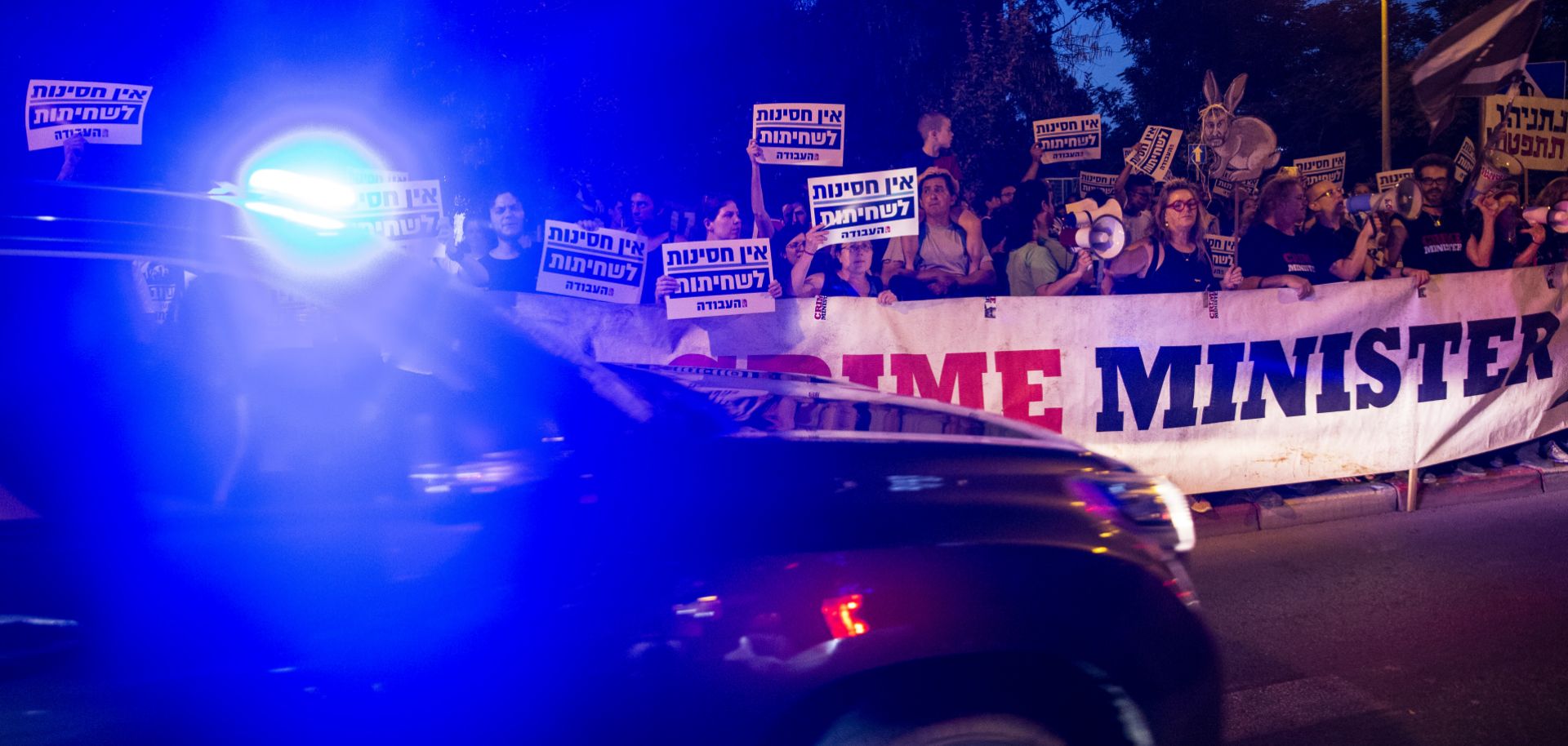ASSESSMENTS
In Israel, Netanyahu Heads for Another Election With No Margin for Error
Jun 10, 2019 | 09:30 GMT

Israeli protesters rally against Prime Minister Benjamin Netanyahu in Jerusalem on May 30. Netanyahu's failure to form a coalition government has Israelis preparing for a second election this year.
(AMIR LEVY/Getty Images)
Highlights
Prime Minister Benjamin Netanyahu and his Likud party will enter the Sept. 17 polls with their domestic legitimacy dented, making them more likely to take risks both domestically and internationally to persuade voters to choose them.
To bolster their security credentials and entice nationalist voters, Netanyahu will take action that could inadvertently escalate tensions with the Palestinians in the West Bank, the Iranians in Syria and Hezbollah in Lebanon.
Regardless of the new premier, the election will showcase who has the upper hand in Israel's culture wars, which has implications for future elections and social policy amid the growing population of Haredim and ultra-Orthodox communities.
Subscribe Now
SubscribeAlready have an account?
